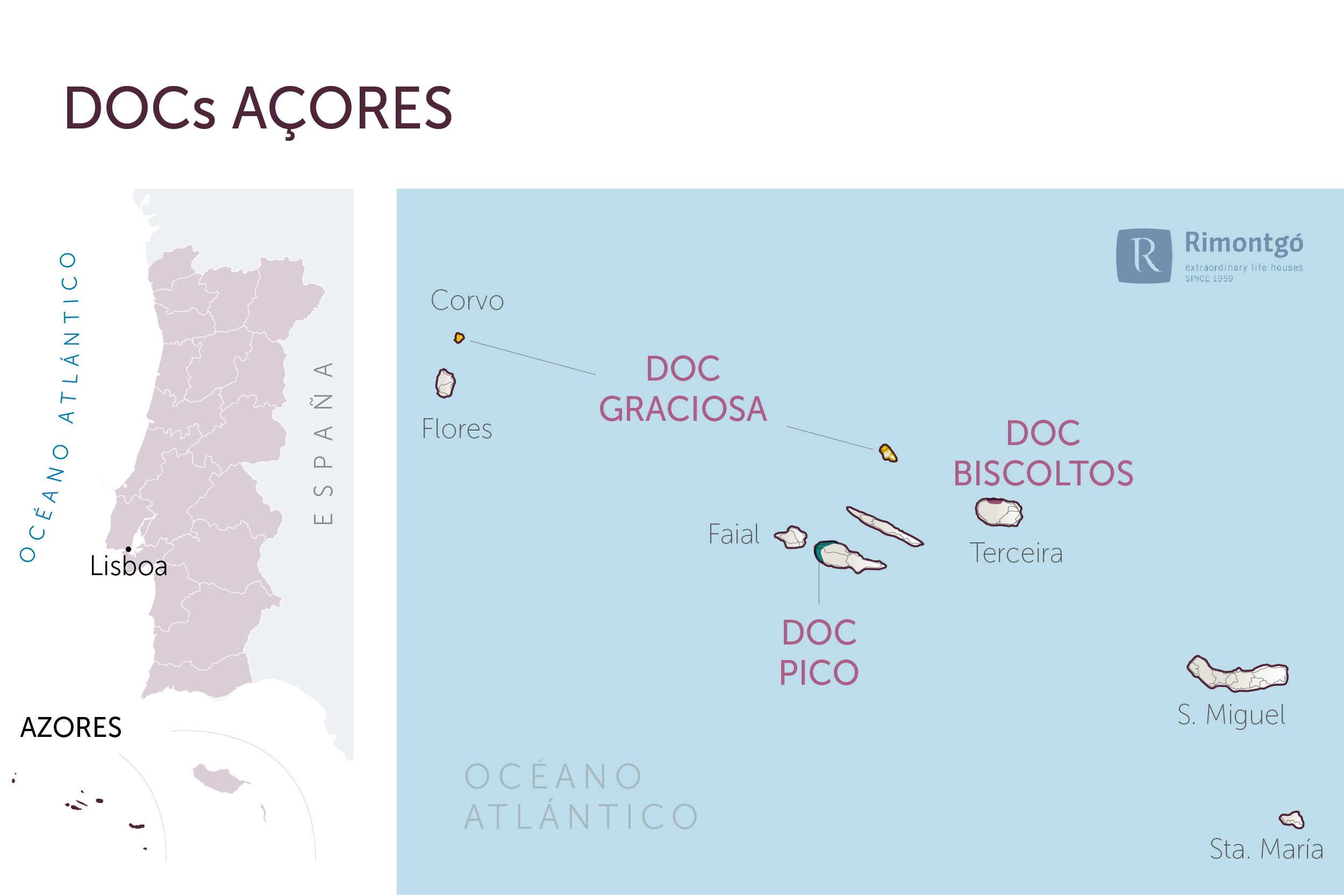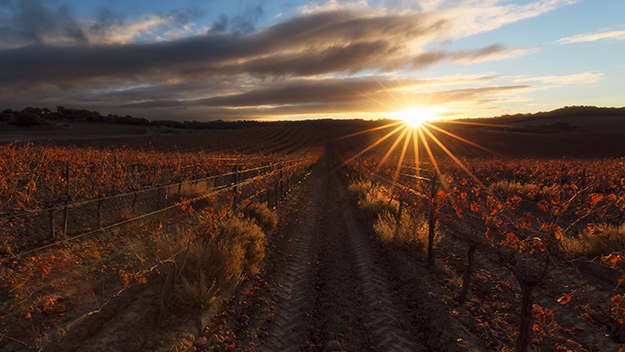Find your winery or vineyard
1 Wineries and Vineyards for sale in Azores
Infographic of the Denomination of Origin

Change to imperial units (ft2, ac, °F)Change to international units (m2, h, °C)
Azores
Climate
The climate is strongly influenced by the Azores anticyclone (the centre of action that induces the climate of North America, Europe and North Africa), as well as by the topographical and geological characteristics of each island.
That said, its climate is characteristically maritime, that is, mild temperatures, with little thermal oscillation, high rainfall and relative atmospheric humidity (75%).
The maritime temperatures are influenced by the Gulf Stream and are also mild (average between 14- 22º C).
Geology and Soils
The archipelago is situated in a geologically very complex area with unique characteristics in terms of the Earth's geodynamics. Three major lithospheric plates (Eurasian, North American and African) converge here.
Its soils are basaltic with different textures (sand, large areas of dry lava or stone).
The famous 2,350 m stratovolcano Monte Pico rises above the ocean.
Viticulture
Normally, on land dedicated to vineyard planting, the lava stones are removed until the soil is found in order to introduce the American rootstock. These stones are used to make walls to delimit the plots, volcanic stone walls rich in nutrients. These walls are called currais, they are so unique and special that on the island of Pico they were listed as Cultural Heritage by UNESCO in 2004.
These currais also serve to shelter the vines from the salty winds coming from the sea, thus creating a micro-climate (absorbing heat during the day and keeping it in at night).
Some wine producers in the Azores:
- Quinta do Jardinete (São Miguel)
- Graciosa Cooperative
- Cooperativa dos Biscoitos (Terceira)
- Cooperativa do Pico
- Adega do Vulcão (Pico)
- Cerca dos Frades (Pico)
Czar, the story of the Azores' least known and most expensive wine
Made by a single person on the island of Pico and with a production limited to just 800 bottles, for which there is a waiting list every year. On the island of Pico, a small Azorean island lost in the Atlantic and guarded by the volcano that gives it its name, one of the most select wines in the world is produced. It is a natural sweet wine, with centuries of history and a singular elaboration. Czar, named after the rulers of the Russian Empire who for centuries sent ships to the island of Pico to acquire its amber-coloured treasure.
Produced in the centuries-old vineyards of Lajido da Criação Velha, a UNESCO World Heritage Site, due to the extraordinary man-made landscape in which they are located, an outstanding example of the adaptation of agricultural practices to the remote and challenging environment of this volcanic island in the Azores. It is a wine whose aromas may resemble sherry or port fortified wines, but it has no added alcohol of any kind. It naturally exceeds 18 degrees, something that astonishes the world's oenologists. This virtue is due to the peculiar characteristics of the verdelho grape of this region, which grows on volcanic soil. With a tradition of more than 500 years and a production of around 860 bottles at a price of around €500, the waiting list is long.
Only three endemic and almost forgotten varieties are planted in Criação Velha: verdelho, arinto dos Açores and terrantez do Pico. And sustainable and traditional agricultural practices are followed, the origins of which date back to the 15th century. The volcano sets the rules, the only thing that counts is to keep intact the heritage, the history, the integrity of Czar, the wine of the tsars.
D.O./Valle (wine regions)
Discover more wineries and vineyards for sale in these wine regions in Islands
Subscribe to our mailing list to receive news about wineries and vineyards.








